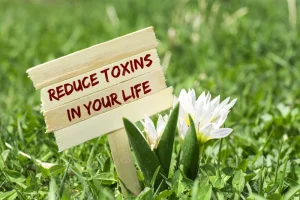Intervention: Help a loved one overcome addiction

Many outpatient treatment facilities specialize in offering MAT. They schedule and monitor medication dosing, so clients usually visit the facility several times a week to receive their medications. Dual diagnosis is when a person has a mental health diagnosis and substance use at the same time.

Do Know When to Take a Step Back
One of the first and most crucial steps in https://ecosoberhouse.com/ supporting your loved one is to recognize that addiction is a disease, not a moral failing or a lack of willpower. This change in mindset can allow you to provide more effective support without judgment. Supporting a loved one through addiction recovery can be both a rewarding and challenging journey. While it’s essential to be there for them, it’s equally important to understand the balance between support and enabling.
- They treat adults for alcohol and drug use, but they also specialize in treating people for gambling addiction.
- Rather than reacting with frustration or disappointment, offer compassion and encouragement.
- There’s no specific amount that indicates someone has an alcohol use disorder.
- These include including Vivitrol (naltrexone), Campral (acamprosate), and Suboxone (buprenorphine and naloxone).
- Think about which approach might be best suited to you and your loved one’s needs and goals.
Tips for talking to an alcoholic about their drinking: Things that can HELP
- This can be a way for them to get some kind of help that can ultimately lead to positive changes in their alcohol/drug use.
- The approach of judgment and shame does nobody good in the end.
- If you know someone who has successfully quit drinking, speak with them.
Learn about the services and resources below to help keep your community safe. Substances like fentanyl and xylazine make the drug supply unpredictable and increase the risk of overdose and other harms of drug use. It’s also important to pay attention to your non-verbal communication.
How To Help Someone With A Drinking Problem
- In these separate tracks they address issues that are pertinent to each gender.
- Don’t blame yourself if the first intervention isn’t successful.
- You are not your loved one’s therapist or AA mentor, so don’t try to take on those responsibilities.
- There are a few things to keep in mind as you are thinking about talking to your loved one about their addiction.
- Asensio, Samuel; et al. “Magnetic resonance imaging structural alterations in brain of alcohol abusers and its association with impulsivity.” Addiction Biology, July 2016.
- Rehab can feel isolating so seeing a familiar face and hearing words of encouragement can make a big difference.
Be ready to direct them to a treatment program you think may be a good fit or to online resources. There is a wealth of information about recovery, and it can be overwhelming to decide where to start in the early stages of sobriety. If you can make that task a little more manageable, your loved one is more likely to take advantage of the work you’ve put into their well-being. Before seriously confronting someone about their drug or alcohol use, spend some time thinking about the reasons you have for being concerned.


For example, research has shown that knitting can be beneficial for psychological well-being, as people who knit experience feelings of calmness and happiness. A hobby such as knitting can serve as an effective form of stress relief for those coping with a alcohol addiction help loved one’s addiction. When a person enters addiction treatment and the family embarks on the recovery journey, the sense of hope everyone feels can be exciting.

- Alcohol has negative effects on the brain and can lead to irrational or impulsive behavior.
- They have locations throughout New York state including in Buffalo, Rochester, Syracuse, Albany, Binghamton, Hempstead, and Manhattan.
- Remain calm when confronting your teen, and only do so when everyone is sober.
- Watching a family member, friend, or coworker with an alcohol use disorder can be difficult.
- While it’s natural to want to do everything in your power to help your loved one, it’s crucial to set boundaries.
Of course, what works for one person will not necessarily work for everyone. However, if you think their experience sounds similar to that of your loved one, ask them if they’d be willing to talk to that person for you. Sometimes information and concern coming from someone who has been through recovery mean more than when they come from someone who has not. When helping an alcoholic stop drinking, making them feel shame or lowering their self-esteem will do no good in a situation such as this. If you have not been through it, do your best not to make any judgments when someone you love is struggling with it. Not only do you not understand it firsthand, but you may also do more harm than good.



